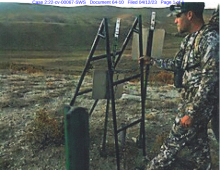
U.S. Supreme Court Declines Wyoming Corner-Crossing Case: What It Means for Montana
Published: October 21, 2025
On October 20, 2025, the U.S. Supreme Court declined to hear Iron Bar Holdings v. Cape, the Wyoming “corner-crossing” case stemming from Elk Mountain Ranch. By denying review, the Court left in place the Tenth Circuit’s March 18, 2025 ruling that favored public-land users, making corner crossing lawful within the six Tenth Circuit states—Wyoming, Colorado, Utah, New Mexico, Kansas, and Oklahoma—when done without touching private land.
What is corner-crossing?
The Case
In 2021, four hunters from Missouri used a step-ladder and GPS to move from one federal section to another at a shared “checkerboard” corner near Elk Mountain Ranch in Carbon County, Wyoming—without stepping on private ground. A local jury later acquitted them of criminal trespass in April 2022.
The ranch owner’s company, Iron Bar Holdings (owned by Fred Eshelman), then sued in federal court for civil trespass, alleging multi-million-dollar damages tied to diminished property value. Chief U.S. District Judge Scott Skavdahl ruled for the hunters, and on March 18, 2025 the Tenth Circuit affirmed, relying in part on the 1885 Unlawful Inclosures Act (UIA) to reject airspace-only trespass claims that would block access to public land. The Supreme Court’s Oct. 20, 2025 cert denial leaves that appellate decision intact.
Why it matters: The ruling preserves corner-crossing access to millions of acres of federal land in Tenth Circuit states where public and private sections meet only at a point.
Perspectives:
Landowners’ concerns
- Trespass & control: Landowners argue that crossing the infinitesimal “corner point” still invades private airspace and erodes their right to exclude. Some also warn of liability, biosecurity, and management issues (gates, cattle, fences) if corners become de-facto access points. In the Elk Mountain case, the owner claimed significant diminution of value if corner crossing were allowed.
- Policy & precedent: Groups aligned with landowners contend that allowing free passage at corners effectively imposes a public easement without compensation. In Montana, United Property Owners of Montana has argued corner crossing entails passing through private space and should be deemed trespass.
Public-land users’ view
- Access & equity: Advocates emphasize that checkerboard ownership otherwise locks up public land that’s supposed to be held in common. The UIA was designed to prevent private barriers that block access to federal lands. The Tenth Circuit’s ruling is hailed as restoring practical access to large areas that would be unreachable if “airspace trespass” controlled.
How many acres in Montana are affected?
Montana has an estimated 900,000+ acres of “corner-locked” public lands—areas practically inaccessible without corner crossing. The Supreme Court’s move does not automatically open those acres in Montana, but it may influence future litigation or legislation here.
Does the Decision Change Corner Crossing in Montana?
Not directly—Montana is in the Ninth Circuit, so the Tenth Circuit’s decision isn’t binding in Montana. It is persuasive authority that Montana courts could consider, but it doesn’t automatically legalize corner crossing in Montana.
Current Montana posture (as of Oct. 21, 2025):
- FWP guidance (2023): Montana Fish, Wildlife & Parks has stated that “corner crossing remains unlawful in Montana” and that wardens will continue to refer cases to county attorneys—who then decide whether to prosecute. This guidance has been publicly disputed by access advocates who note FWP did not cite a specific Montana statute expressly banning corner crossing.
- Montana law: Montana’s criminal trespass framework centers on entering or remaining on private premises without license or privilege, with details about posting and permission. There is no statute that specifically addresses corner crossing; consequently, many describe Montana as a legal gray area until a Montana court squarely rules or the Legislature acts.
- The issue remains unsettled.
